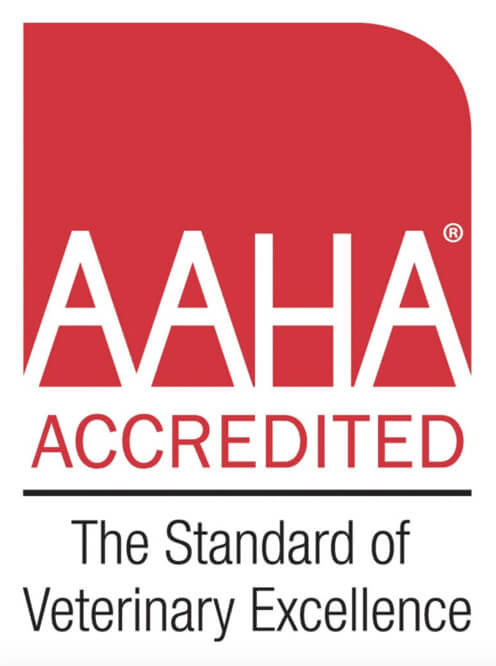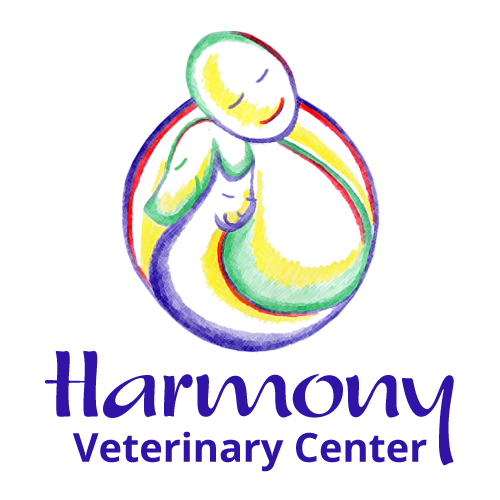On a national level, veterinarians have seen a reduction in core puppy vaccinations during the pandemic, giving rise to outbreaks of both Parvo and Distemper. Puppy vaccines are an important part of building immunity in young dogs because the immunity they got from their mother’s milk is waning as they grow. While over-vaccinating pets can have ill-effect, core vaccines such as those for Parvo and Distemper are nearly always recommended. Other “life-style” vaccines demand a closer look at both exposure and lifestyle.
Says Dr. Brown, DVM and Co-owner of Harmony Veterinary Center, “Our vaccination philosophy is to vaccinate each pet in a way that keeps him or her safe from disease without over-vaccinating.” Thankfully, vaccine technology has evolved, allowing longer intervals between vaccinations, and eliminating the causes of many vaccine reactions. “By spreading vaccines out, we give the body time to find its peak immune response,” explains Dr. Brown.
She continues, “We also do our research to find the gentlest vaccine we can find without causing harm. That includes using only Thimerosal-free, vaccines.” Thimerosal is a mercury-based adjuvant that helps the body create an inflammatory response but does not prevent the disease. Harmony chooses its vaccines based on the latest studies in effectiveness and safety.
Life-Stage and Other Considerations
Before embarking on and personalizing any vaccination protocol, it’s important to assess your pet’s lifestyle, life stage and risk factors. Young animals are often at more risk because they have less mature immune systems. Middle-age pets have the strongest immune systems. Older or senior pet immune systems start to diminish so they may or may not still need to be vaccinated, depending on their lifestyle and risk factors.
Harmony offers Titer-tests to pets who are not good candidates for vaccination. Titer levels are considered a measure of the body’s immune responsiveness and protection against disease at the time the titer was taken, though not an indication of immunity going forward. “In addition, homeopathic support is provided for all pets who receive a vaccination,” says Dr. Brown.
About Parvo and Distemper
Arguably the most serious disease veterinarians vaccinate for, K-9 Parvovirus (Parvo) infects rapidly growing cells, including the cells lining the GI tract and the immune cells. When the intestinal lining is damaged, bacteria and toxins can get into the bloodstream. Since the virus also destroys the immune cells, the body has no way to respond to this invasion. There is no antidote or cure for K-9 Parvovirus. Only aggressive nursing care with hospitalization, intravenous fluids, antibiotics and other medications to manage the symptoms will help these dogs through.
Similarly, Canine Distemper Virus is a highly infectious virus that has been significantly reduced through widespread vaccinations over the last 40 years. In infected animals, it causes severe discharge, upper respiratory symptoms, diarrhea, dehydration and immune suppression. While most dogs today can survive distemper, there can be lasting effects, such as seizures.
How Vaccines Work
Vaccines consist of proteins, called antigens, from the disease we are vaccinating against. When injected into a patient, the immune system sees these antigens as foreign and responds to destroy them. This process creates a memory of the antigen in the immune cells. When an animal is exposed to the actual disease, the memory in the cells causes an immediate and overwhelming immune response, allowing the body to fight the disease before it can take hold and cause problems.
Depending on the vaccine, this memory can last a few months or a lifetime. So, it is necessary in most cases to booster the vaccine, reminding the immune system to recognize and fight that particular disease.
A Happy, Healthy Life
Ultimately, vaccines help prevent disease. Utilizing them minimizes the potential your pet will suffer physically or emotionally while reducing the chance you’ll be faced with high costs of veterinary care. With a balanced approach, they also help ensure your pet’s long-term health. The key is to take into consideration lifestyle, life stage and risk factors as well as the schedule of vaccinations, the types of vaccinations used, and how they are administered.

